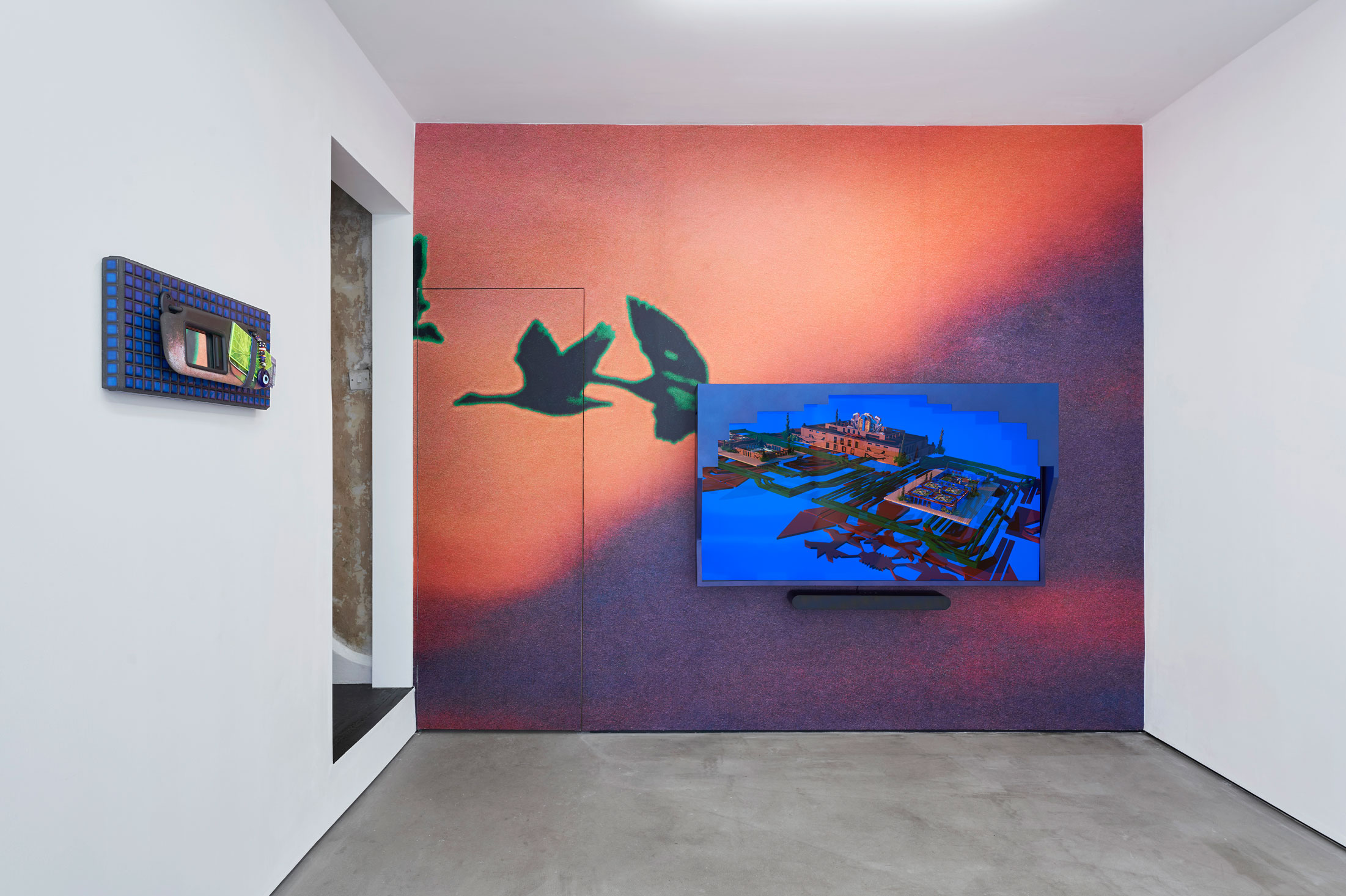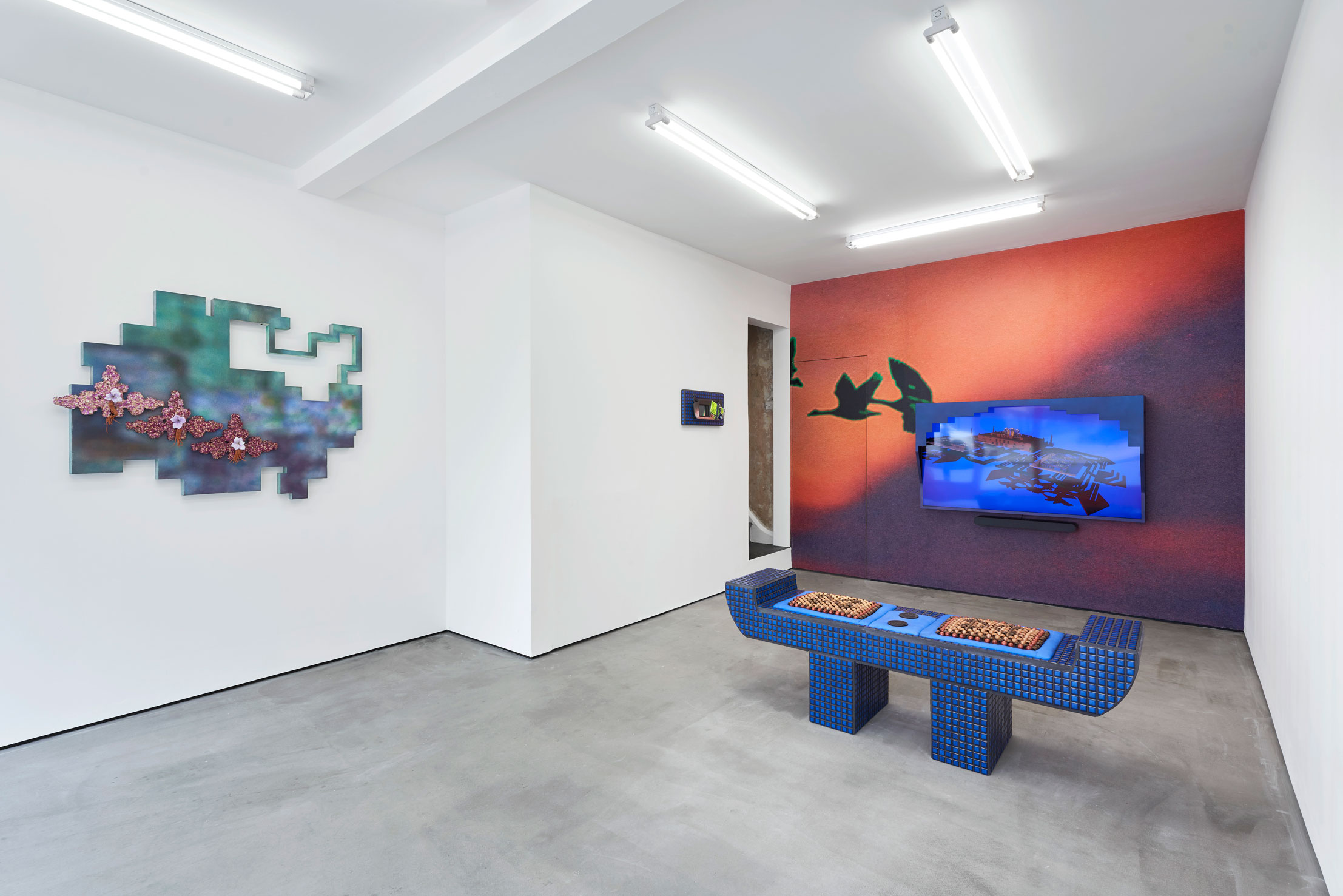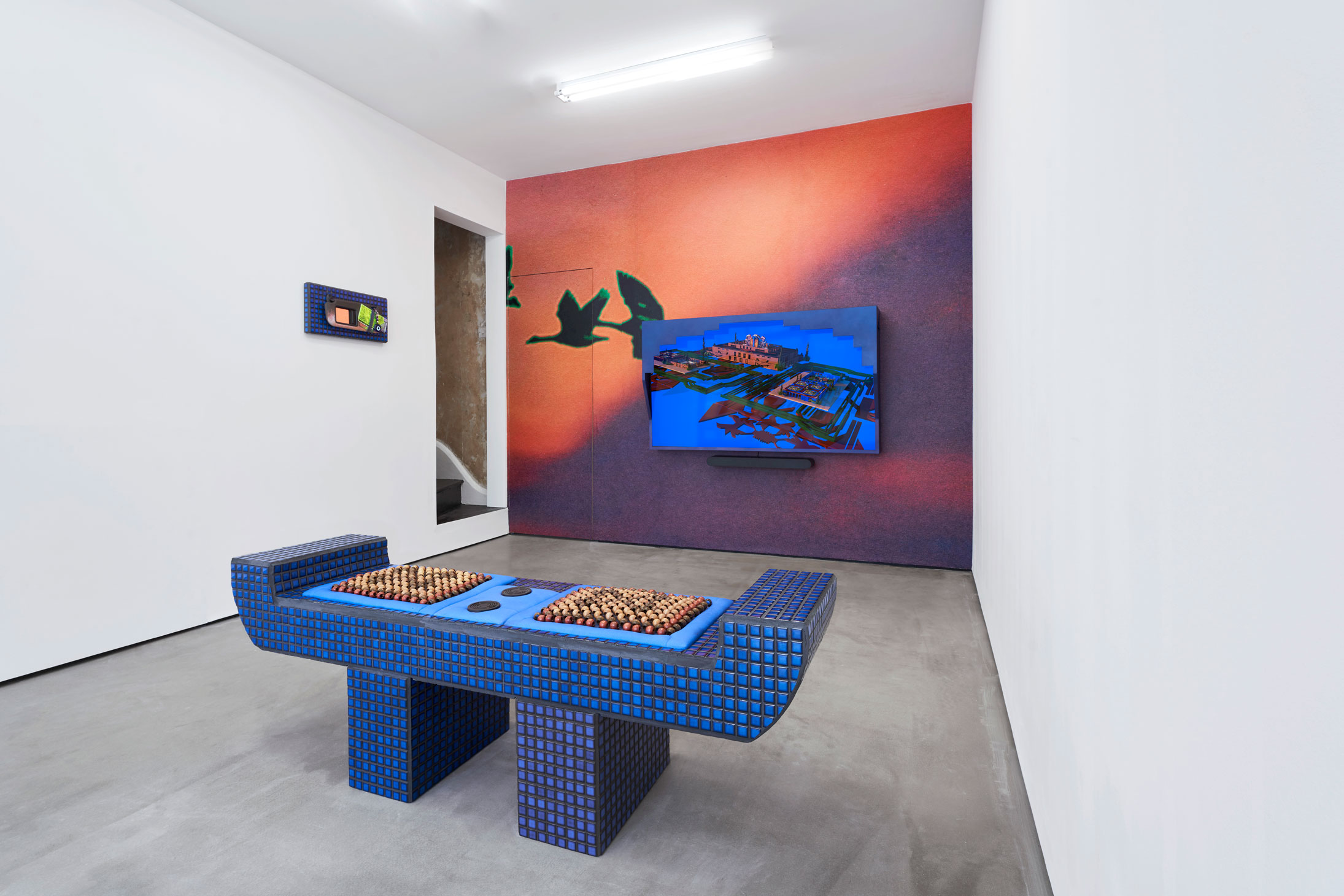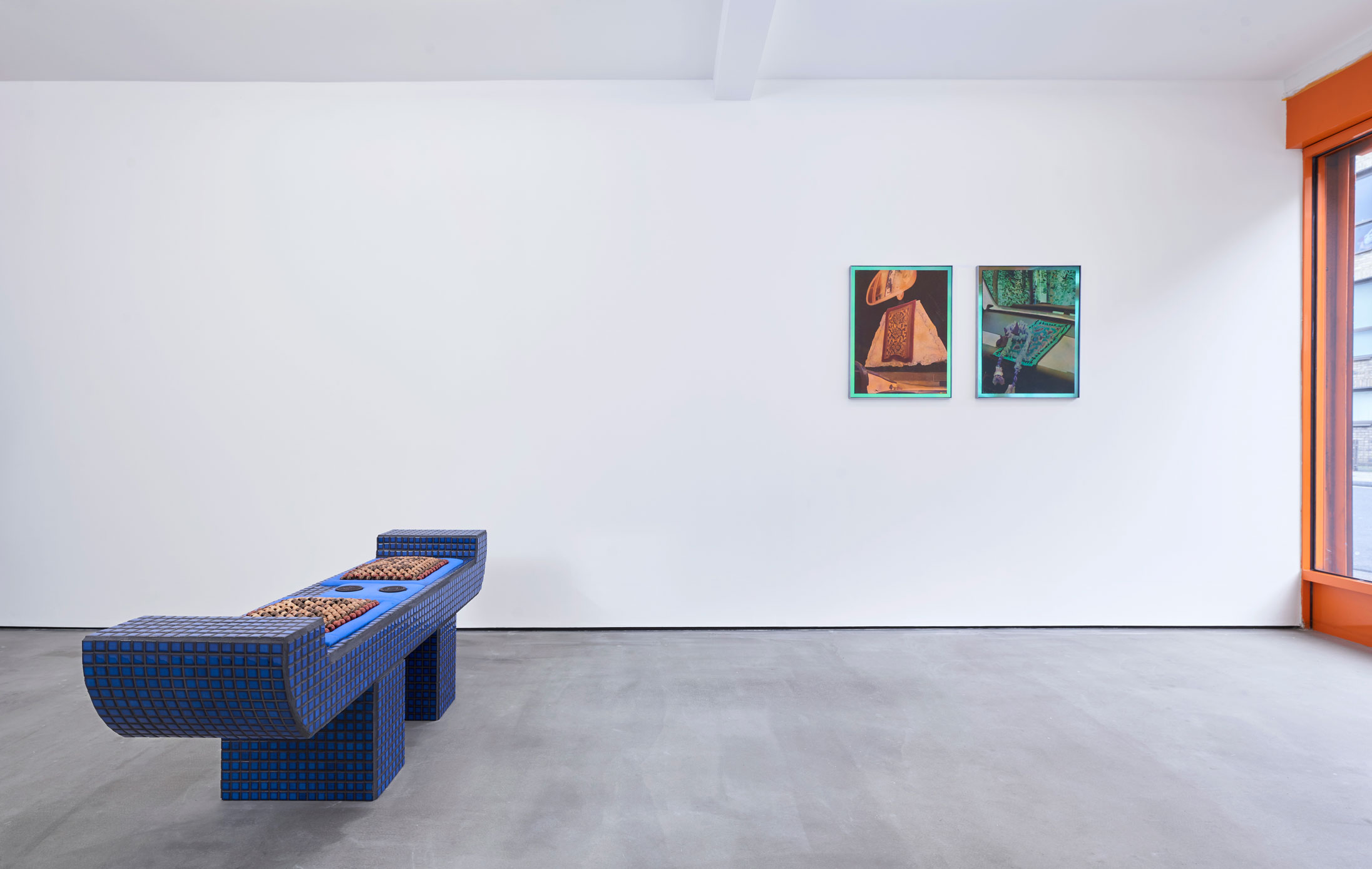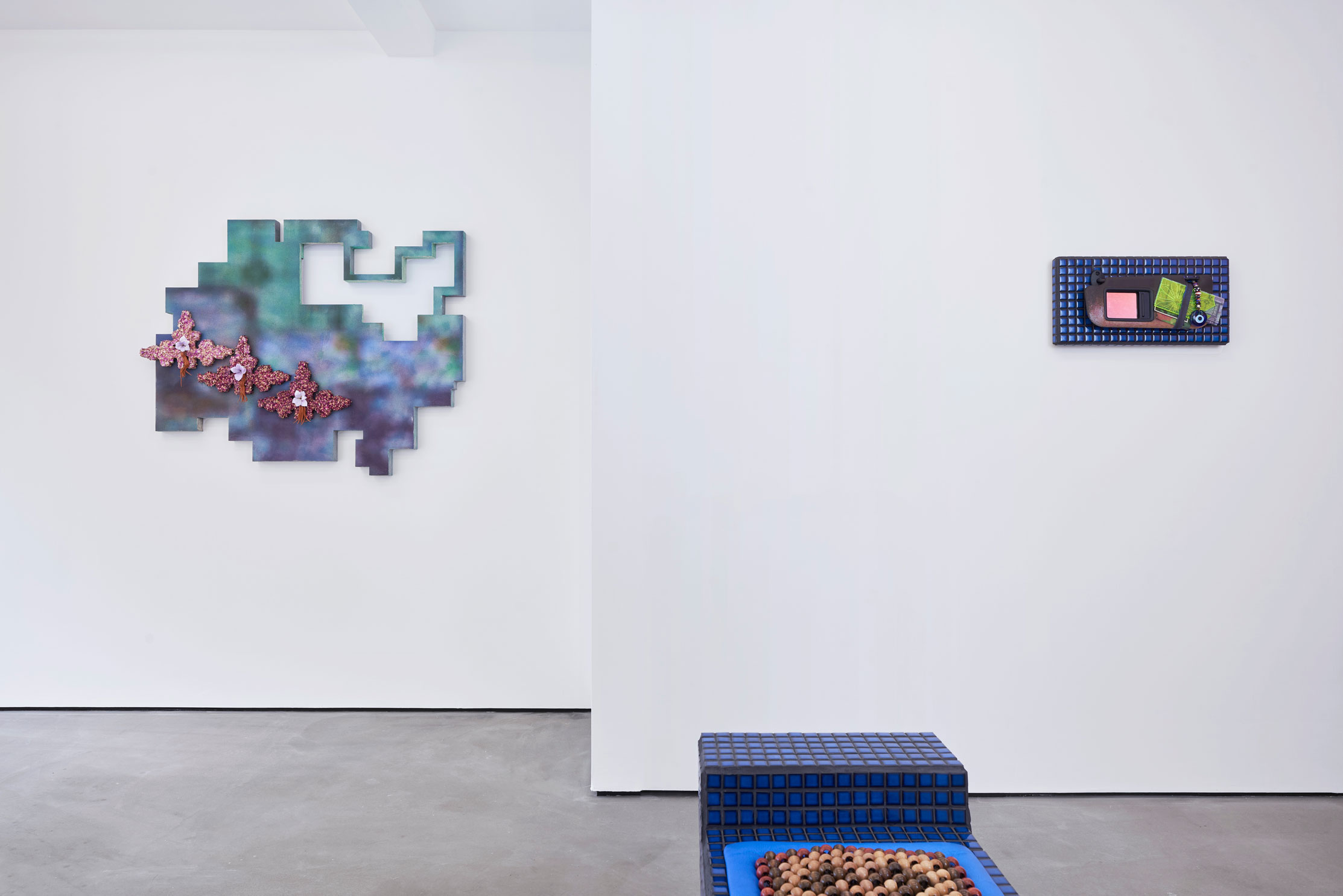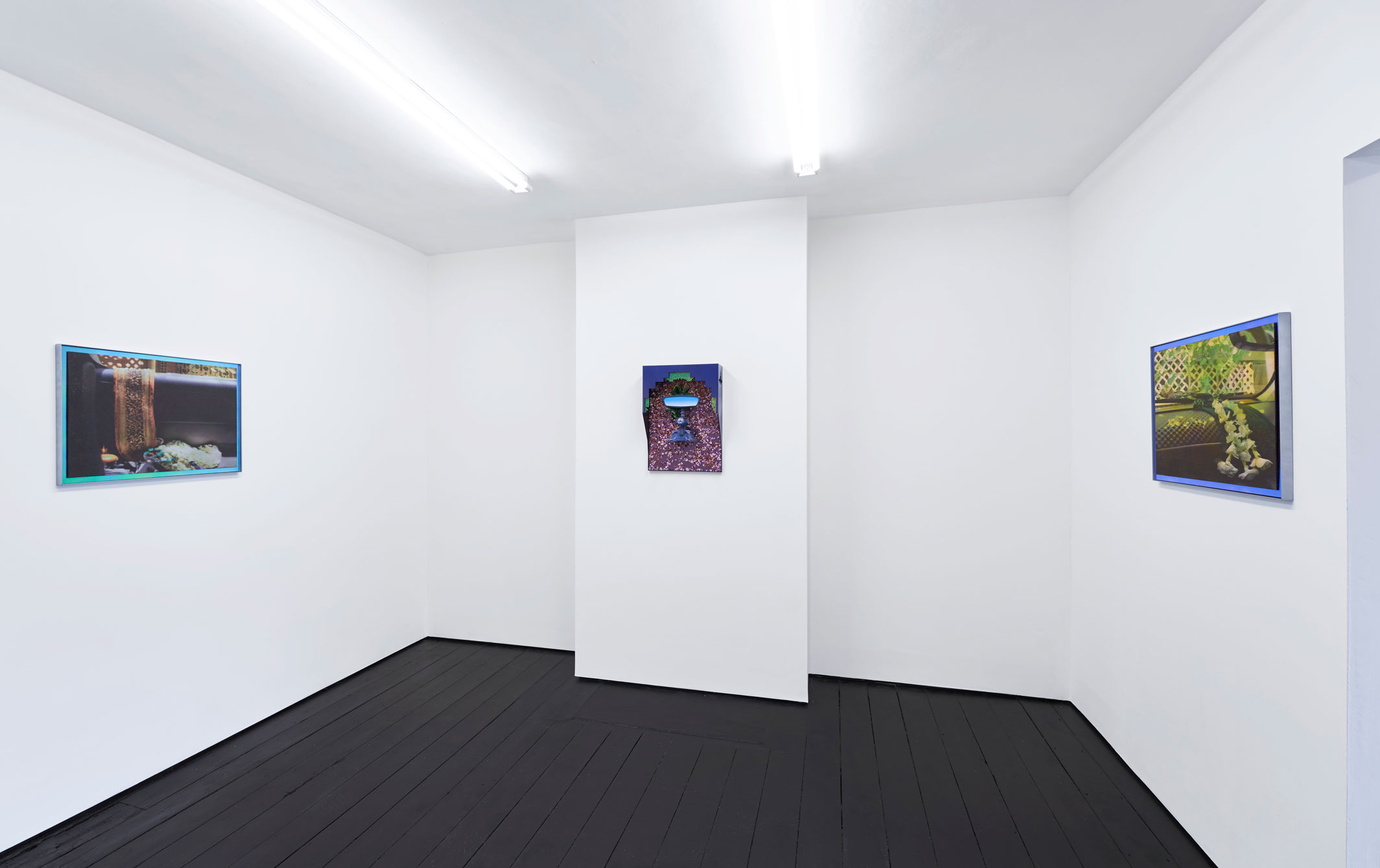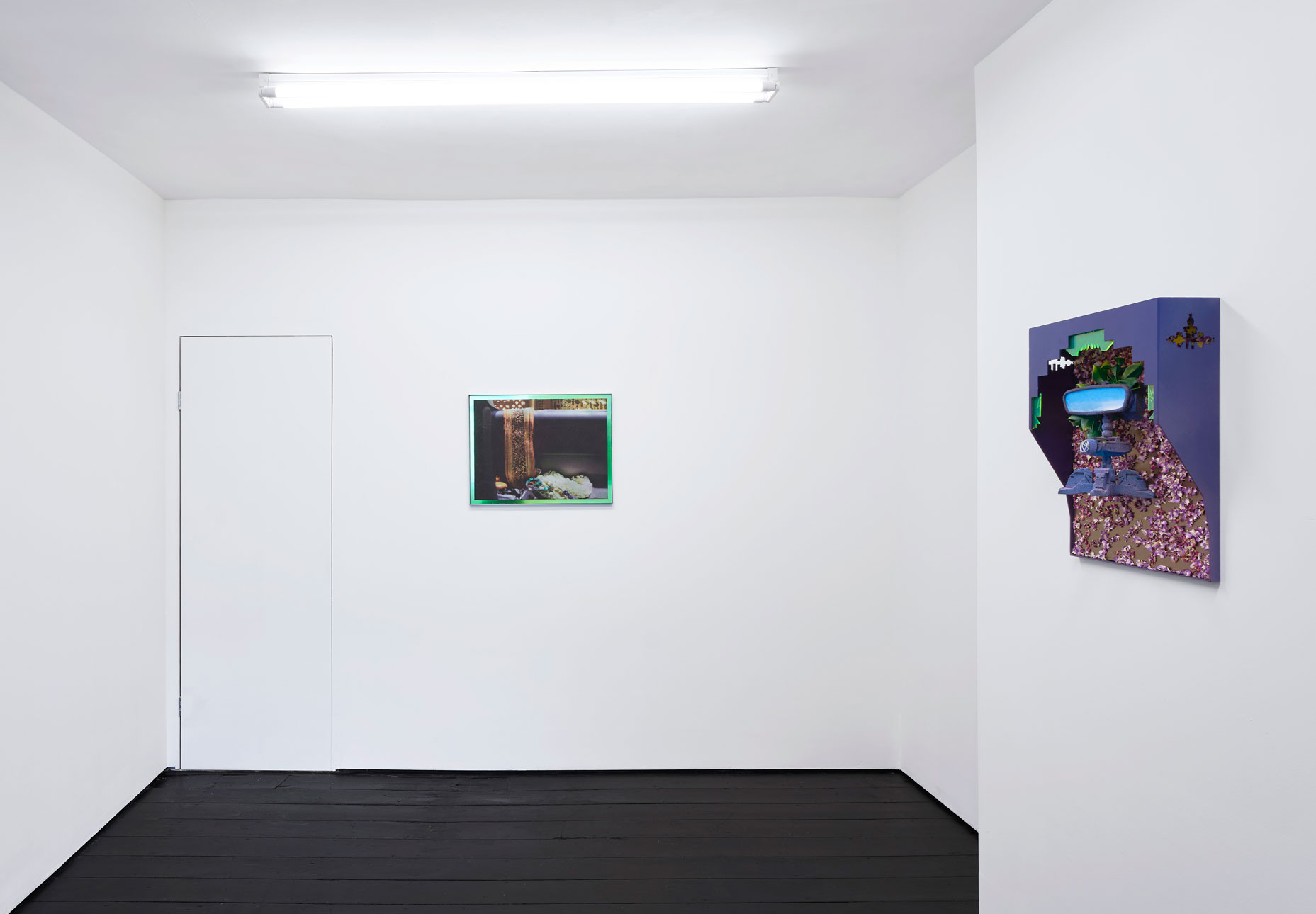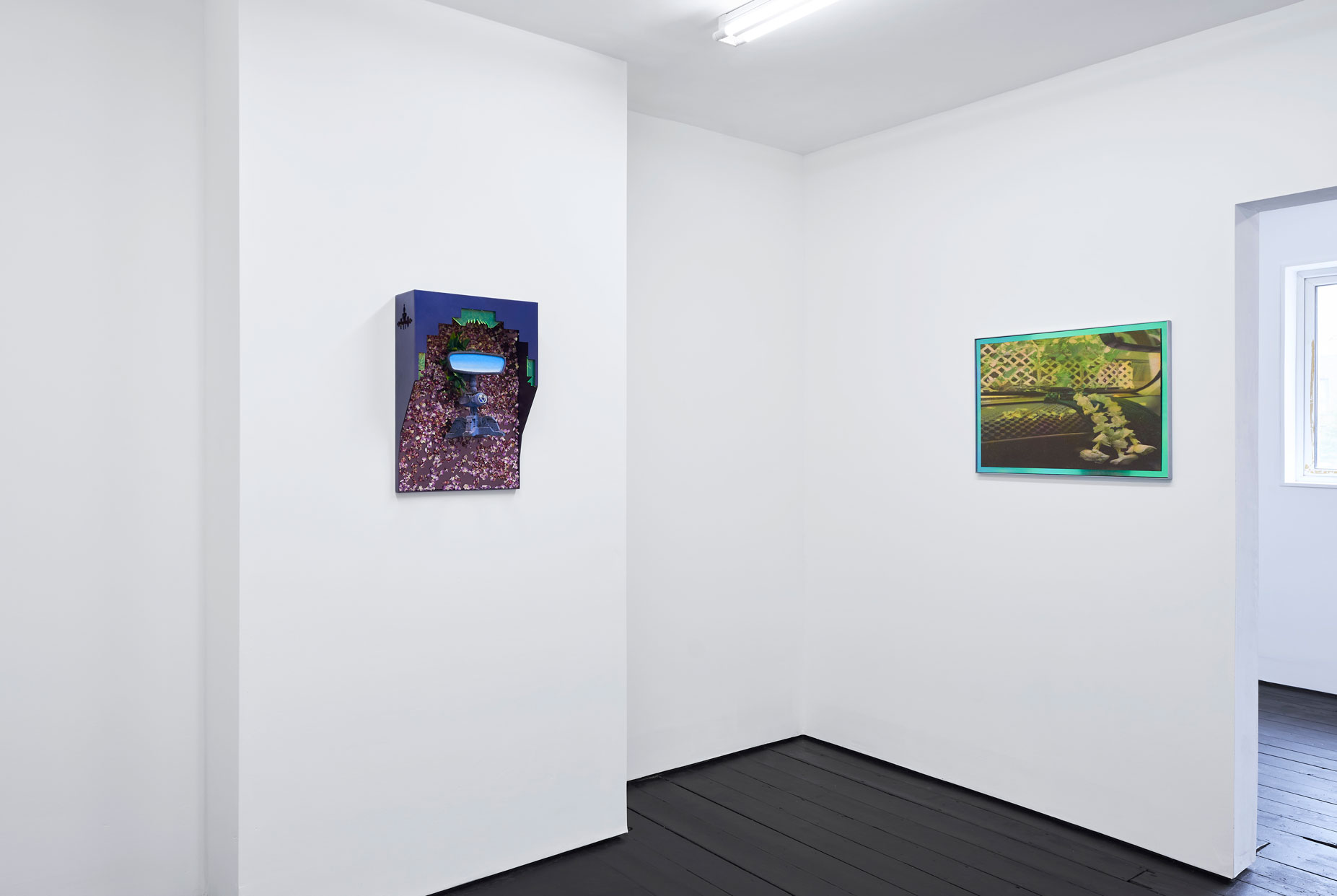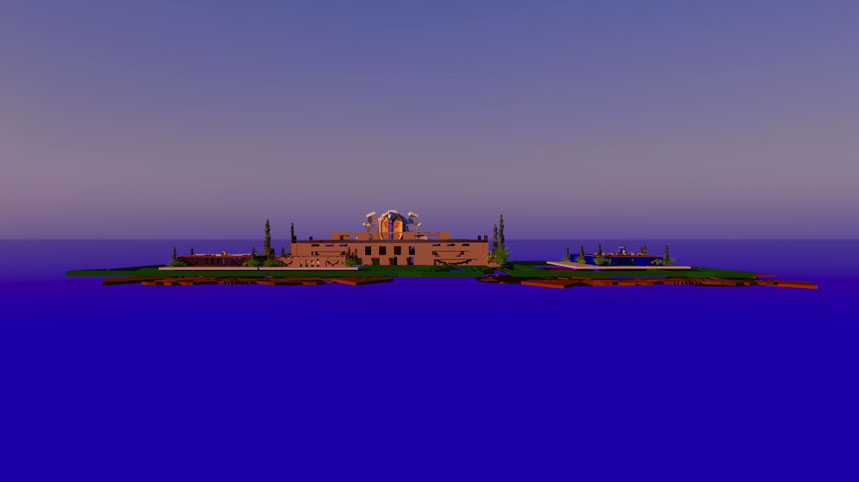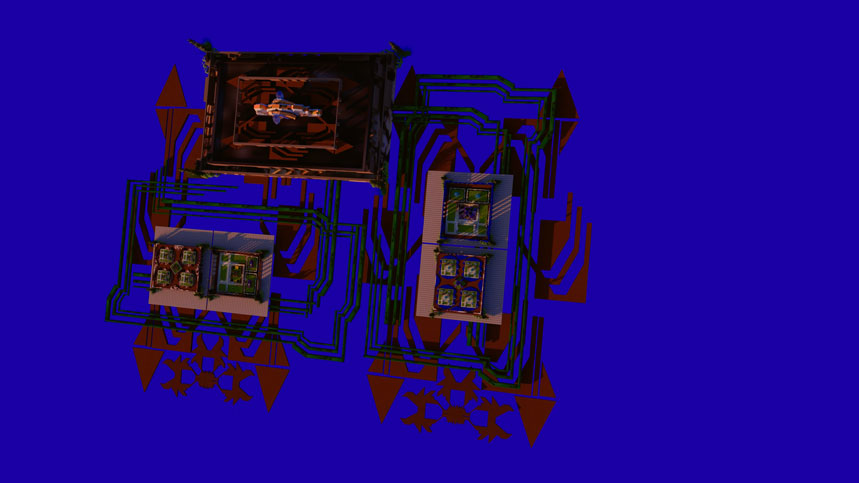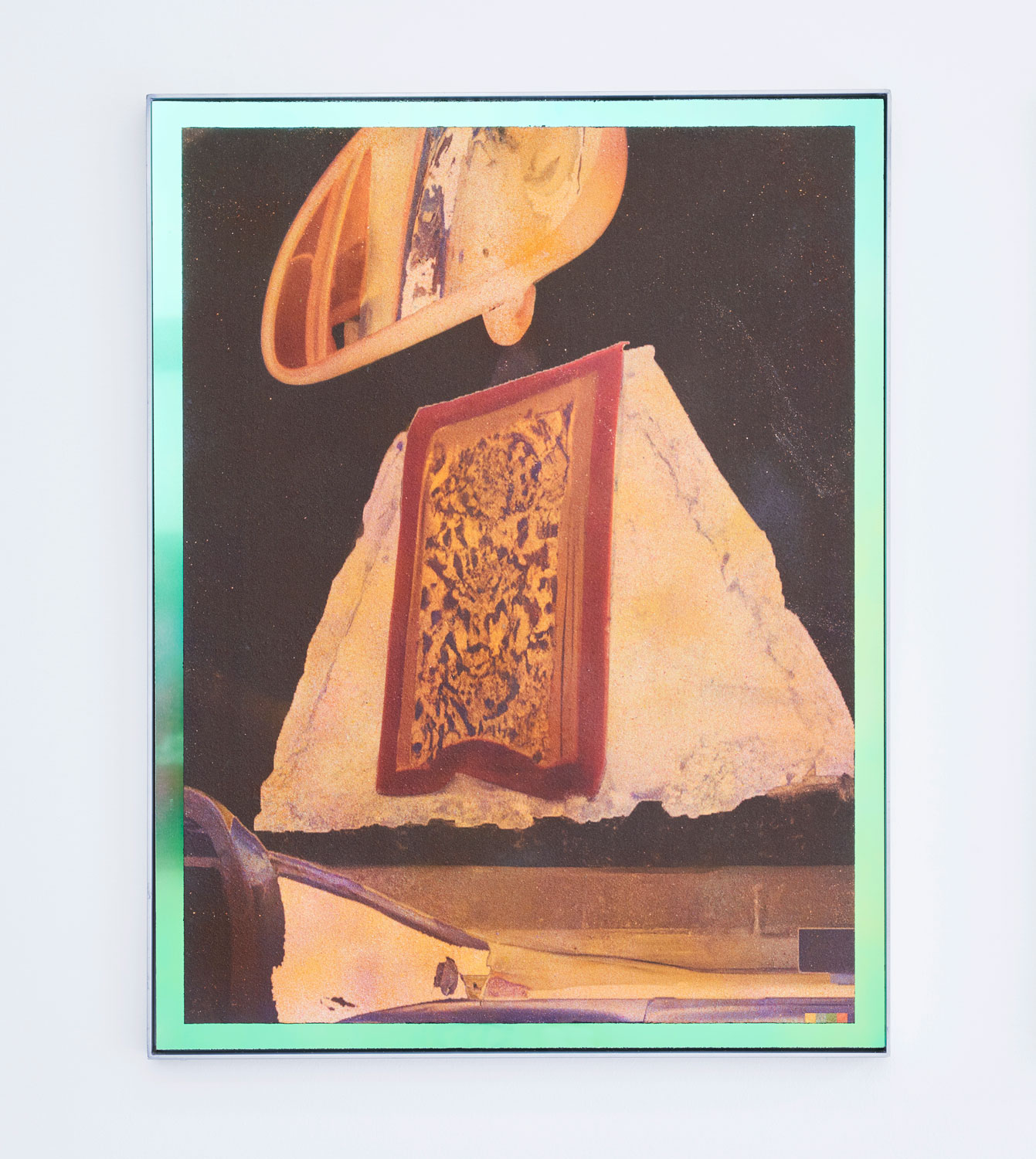Passing Pari-daiza
11 May - 17 June
Soup presents the gallery’s inaugural exhibition, ‘Passing Pari-daiza’, a solo showing of new work by South London-based artist Alia Hamaoui. Hamaoui (she/her) is a British-Lebanese artist and organiser, a graduate of Camberwell College of Art and a member of Gobyfish Collective, a platform for dialogue, collaboration and exchange that operates at the intersection of art and food.
Maintaining a broad, multidisciplinary practice, Hamaoui aims to advance our understanding of the interrelationship between cultural identity, the object and place, as viewed from within our increasingly digitised society and tech-infused existence. Addressing the importance placed on physical remnants of the past, as well as historically Western depictions of the SWANA region in mass media and popular culture, Hamaoui explores the ways in which image and memory can distort a sense of place or belonging. Layered and textured mise-en-scènes are imbued with references to ancient artefacts, heterotopic spaces or cultural contexts that resonate with her dual heritage, whilst also reflecting the artist’s own personal memories and the omnipresence of digital imagery.
For ‘Passing Pari-daiza’, her debut gallery solo exhibition, Hamaoui has produced a new body of work centred around two arenas that employ concepts of containment to embody the ideas and ideals of physical or psychological journeying; the Islamic paradise garden and the car voyage. During the last few pandemic-plagued years, and especially following a personal loss exacerbated by geographic distance, the longing for secluded green space within the urban environment or the freedom associated with car travel gained renewed significance. Just as advancements in the automotive industry might appear to allow access to those environments previously out of reach, so too the Islamic garden – that archetypal ‘eternal’ with its raised walls and carefully choreographed balance between architecture and nature – professes to provide access to an expanded spiritual sphere. Following a prolonged period of research into the myriad mediations and histories of both the walled paradise garden and the road trip cinematic trope, as well as their relevance to the recent societal shift from a disciplinary panopticon (big brother) to a digital panopticon (technologically induced feelings of limitless that lead to self-governing), Hamaoui saw these spaces’ potential to provide healing and manifest as metaphorical stages for her own self- examining.
For the moving-image work ‘Panoptic Gardens’, Hamaoui has created her own digital, three-dimensional Islamic paradise garden, a hybridised walled world that merges aerial photographs, early video-game design, documentary photography, Islamic textile patterns and the artist’s own recurrent motifs. Traversed in a way that exposes the flatness of the rendered realm, akin to viewing a landscape through the window of a fast-moving car, the simulation exposes the illusory nature of technological journeying and provides proximity to paradise despite its evident artifice. Alongside, AI-generated and digitally manipulated imagery printed onto dyed sand panels demonstrate the prominence of the car dashboard as a site for spiritual self-construction or self-expression and the potential of the rear-view mirror to present a fragmented, collapsed timeline of past, present and future. Finally, Hamaoui’s installation arrangements and sculptural assemblages merge physical and pictorial elements from automotive interiors and Islamic gardens, alongside mementoes and found objects collected from her own daily life that are reminiscent of both. Additional engagement with the expanded array of our senses through the use of olfactory features and tempting haptic textures elicits a transportive immensity, as Hamaoui encourages the viewer to embark on their own transcendental travels.

